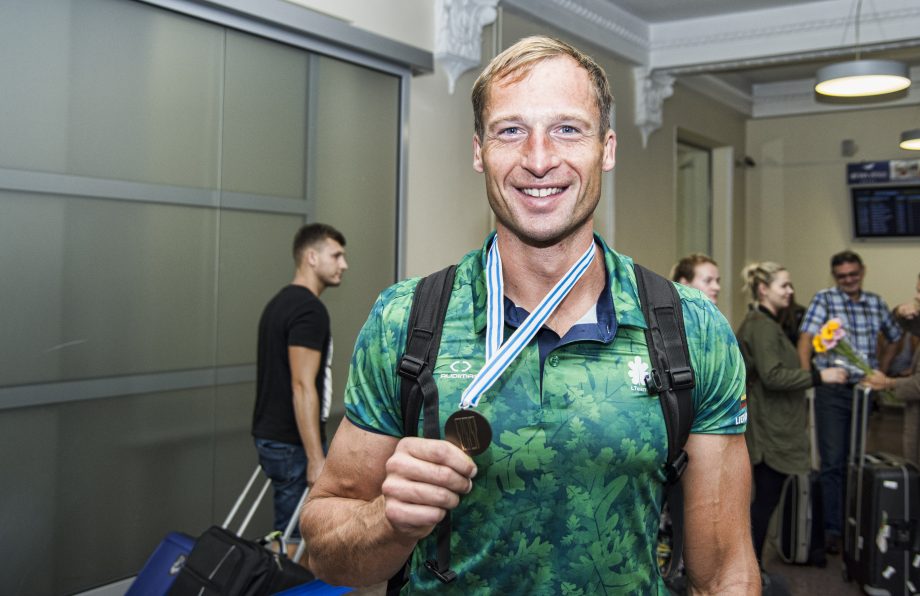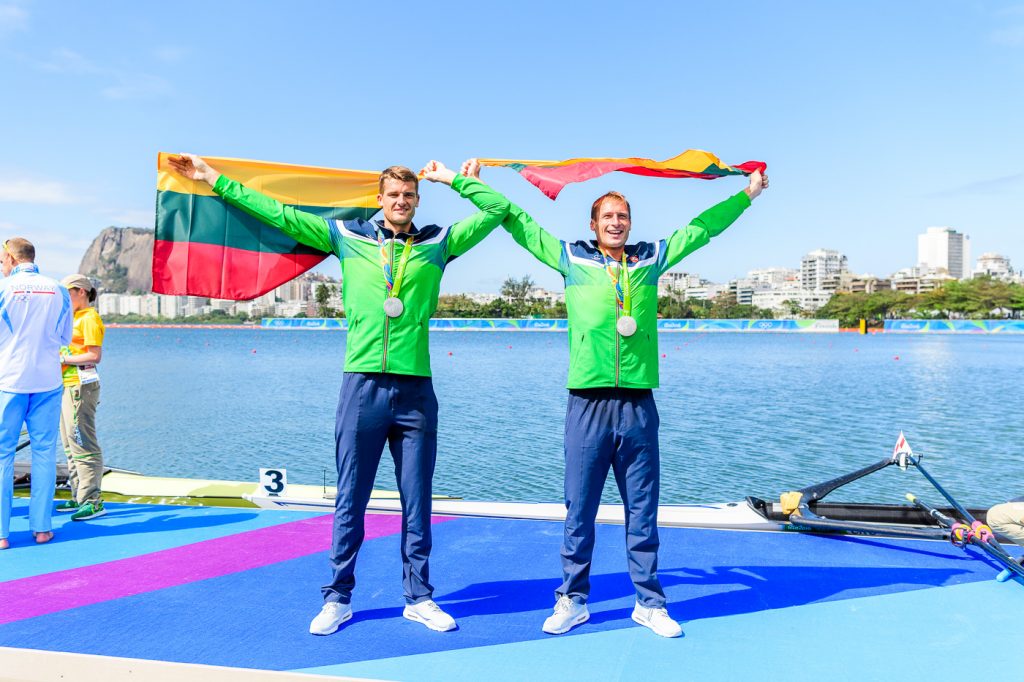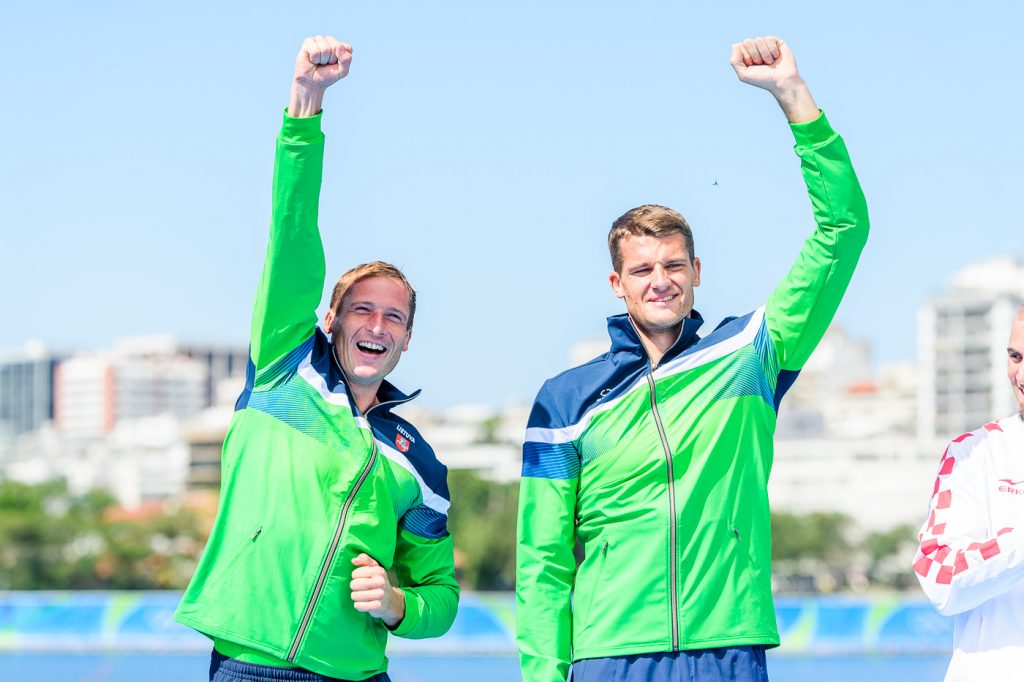LITHUANIAN NATIONAL OLYMPIC COMMITTEE

Rower Mindaugas Griškonis knows very well about the possibilities that a second career gives to an athlete. According to him, an alternative activity for a young athlete is an “emergency exit which might also prove to be unnecessary”. However, every athlete who thinks about his or her future after “medals run out” must have one.
Athletes’ second careers and their integration to the society and the job market is the concern of the Athletes’ Entourage Commission of the International Olympic Committee (IOC). The IOC’s programmes in Lithuania are implemented by the Lithuanian National Olympic Committee (LNOC).
During the international athletes forum that took place in Lausanne in the beginning of April, athletes’ second career opportunities were given a lot of attention. Representatives of all the world’s Olympic committees (206) agreed to increase the support for double or second athletes’ career by ensuring education and necessary information and by organizing quality training
Since 2016 the LNOC has conducted three “Second Career” training sessions for athletes. One of them was attended by the Olympic silver medalist and multiple winner of European championships M. Griškonis who is one of the few Lithuanian elite athletes that have their own business.
When not rowing, M. Griškonis takes care of UAB “Mingas” matters. The athlete has been the owner and CEO of logistics company for 10 years and has 35 employees. M. Griškonis agreed to tell the readers of the website LTOK.LT about the importance of the second career, business challenges and necessary competencies and priorities.

Which sport-related skills help you the most in your second career?
Sport hardens and helps to develop the mentality of the winner; it also helps people to learn to never accept failure. In business, just like in sport, only the strongest survive. There are many businesses in Lithuania, but some of them grow and expand, while others face bankruptcy. Sport also taught me to strive and wish for my goals more than others do. In sport you have to be better at something than everyone else. What you lack in talent, you have to compensate by working hard. And finally, sport allowed me to understand that the range of possibilities is very wide, therefore one has to learn to make demands to oneself, to be patient and only then to achieve results. Same goes with business.
Is it difficult to combine careers of a rower and a businessman? How do you manage to harmonize your sports career and your second career?
An alternative activity would be very useful for any athlete. It is dangerous to focus on a single activity, as it narrows one’s outlook. This second activity does not necessarily has to be a job, it could simply be a hobby. An alternative activity helps to change attitude and allows to experience the true taste of real life.
While in a scull and waiting for the start, I definitely don’t think about cargo stuck in customs. During the years I have assembled a reliable team which, when necessary, can perform the required work without my involvement. I work after my training sessions, I make calls and communicate, but when in the scull I think only about my rowing goals. You won’t achieve anything in sport otherwise.
You started your business ten years ago. Would you be able to create something similar from the scratch now?
It would be difficult. Business has changed a lot, the competition has increased not only in Lithuania, but also in the whole Europe. When I was creating my company, I did everything myself – I bought equipment and searched for employees. Now it would be much more difficult, as the world has advanced a lot further.
What opportunities has your own business given you?
What I realized is that I don’t want to become a coach (laughs). I spent too much of my life sitting in a scull and traveling to training camps, I don’t want to continue that after ending my athletic career. My business gives me inner peace, because I know what I will do after my last professional finish.
What competencies are necessary in modern business?
The ability to communicate with people is very valuable. Businesses can vary, but when there’s a group of work-related people it is necessary to be able to communicate and to motivate. Just like in sports, in business the team is essential. In my field of business communication is very important.
You participated in the LNOC’s “Second Career” training session for athletes. How are they useful to athletes?
Any training on second career is useful for every athlete. It is necessary to start thinking about an alternative activity that could provide a source of income in the future right from the very start of the athletic career.
What would you recommend to young athletes? When should they start thinking about their second career?
It’s never too late nor too early to undertake other activities. The younger you start, the more chances you have to try out new things and understand what you like and what suits you the best. I’ve been involved in business since I was – I used to sell newspapers in the streets. Therefore, when faced with an opportunity, it is better to try it out than to feel sorry later about missing it or trying it too late.

—
In September the LNOC will organize special career training session for athletes. During this session a new unique athletes-oriented program „Athlete365 Business Accelerator“ will be introduced. The training session’s purpose is to help reveal the athletes’ strong character traits and recognize their skills, while speakers will share their experience on how to apply them in different areas. During the practical part of the training session athletes will be taught to establish and maintain connections, prepare their CV, and get ready for a job interview.